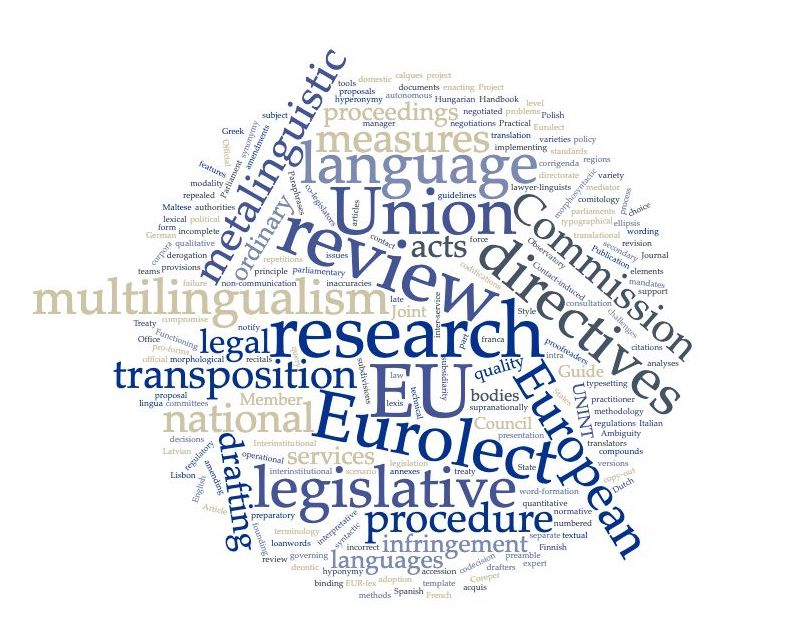Abstract
The book under review presents the frst results obtained in the framework of the ambitious Eurolect Observatory Project, set up in 2013 at the Università degli Studi Internazionali di Roma (UNINT) and coordinated by Laura MORI. In this frst phase, 19 researchers from 11 European universities analysed corpora containing EU directives and national implementing measures in 11 languages (Dutch, Finnish, French, English, German, Greek, Italian, Latvian, Maltese, Polish and Spanish) with a view to testing and/or confrming “the hypothesis that there are EU legal varieties (“Eurolects”) which were born and developed within the linguistic dia-systems” of a specifc Member State, and to highlighting “the differences between each Eurolect and its corresponding national legal variety, in order to provide elements that might be useful to the study of metalinguistic and translational issues”.

Dieses Werk steht unter der Lizenz Creative Commons Namensnennung - Nicht-kommerziell - Keine Bearbeitungen 4.0 International.
Copyright (c) 2019 Zeitschrift für Europäische Rechtslinguistik (ZERL)

